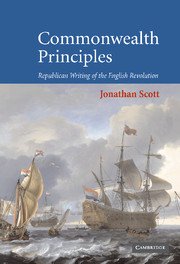9 - The politics of time
Published online by Cambridge University Press: 22 September 2009
Summary
When the Father who had generated this saw here an image of the Eternal Gods, he rejoiced, and in his joy sought to make the world still more like to its model. And as the model is an Eternal Living Thing, he sought to make the universe like unto it, as far as may be. But the nature of that Living Model was eternal, and it was not possible to give this character fully to a generated thing. Therefore he devised a moving image of that fixed eternity: he made the heavens to be, by their structure … a likeness of that eternity which is fixed and one; and this we call Time.
Plato, The TimaeusTHE POLITICS OF THE ANCIENT CONSTITUTION
Like most humanist writing, English republican argument was grounded in an appeal to historical sources. In the words of John Hall, ‘And truly I conceive reading of History to be the most rational Course to set any judgement right, because it instructs by Experience and Effects, and grounds the Judgement upon material Observations, and not blindly gropes after Notions and Causes.’ Our specific concern in this chapter, in relation to this historical frame of reference, is with republican arguments concerning continuity and change.
- Type
- Chapter
- Information
- Commonwealth PrinciplesRepublican Writing of the English Revolution, pp. 191 - 209Publisher: Cambridge University PressPrint publication year: 2004



